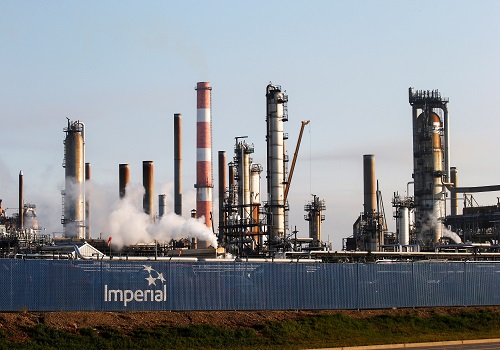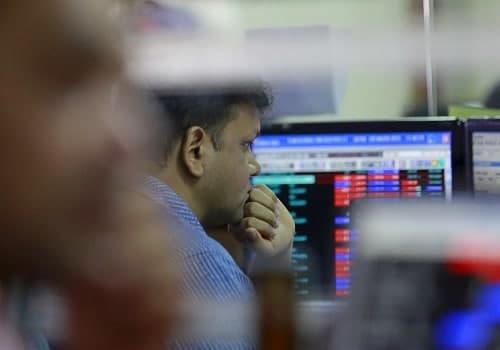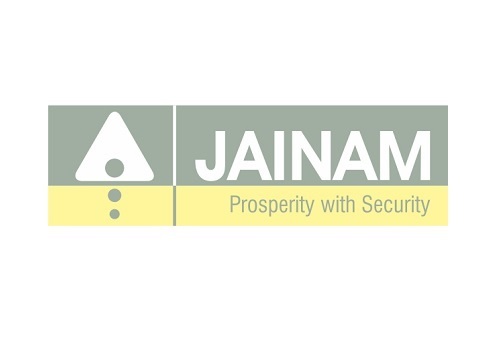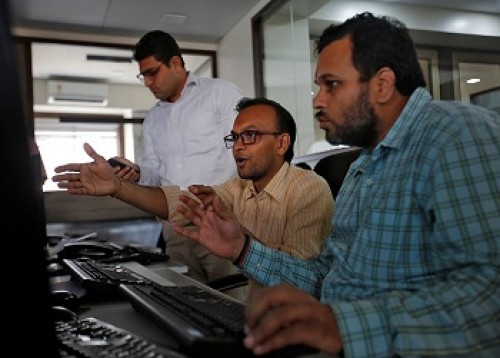Indices snap 5-day winning run; Nifty below 16,700 level

Follow us Now on Telegram ! Get daily 10 - 12 important updates on Business, Finance and Investment. Join our Telegram Channel
Indian equity benchmarks reversed 5-day winning trend and settled deep in the red on Tuesday, mirroring weak global markets. Losses in Metal, Oil & Gas, Energy and IT shares pulled the headline indices lower. After making positive start, key indices gave up gains and traded lower for the day, as traders turned cautious with data released by the Ministry of Statistics and Programme Implementation showed that India's retail inflation in February rate rose to an eight-month high of 6.07 percent from 6.01 percent in the previous month, remaining above the upper limit of the central bank’s comfort level of 6 per cent for the second consecutive month. Traders were concerned as SBI forecast more pain for the rupee if the ongoing Ukraine war lingers, plumbing to a new low of 77.5 to a dollar by June and marginally improving to 77 by end-December. It also said the current account deficit (CAD) will be at 3.5 per cent if crude oil trades at $130 a barrel, pulling down growth to 7.1 per cent.
Markets extended losses in second half of trading session, as investor sentiments got a hit with report by the Ministry of Statistics and Programme Implementation showing that India's urban unemployment rate jumped to 12.6 percent in April-June 2021 from 9.3 percent in the previous quarter. Besides, foreign institutional investors (FIIs) continue selling in India as they have net sold shares worth Rs 176.52 crore on March 14, the lowest offloading in a single day in the last one month. Traders overlooked rating agency ICRA Ratings’ report that the asset under management (AUM) of non-banking financial companies (retail) is expected to grow 5-7 per cent in fiscal 2022 and 8-10 per cent in fiscal 2023. It said housing finance companies (HFCs) are likely to see their AUM expanding by 8-10 per cent in the current fiscal and 9-11 per cent in the next financial year. Market participants also paid no heed towards industry body Retailers Association of India (RAI) stating that retail business in India grew 10 percent in February this year compared to the sales level in the same month last year, signaling that the sector is inching towards normalcy.
On the global front, Asian markets ended mostly lower on Tuesday, while European markets were trading lower, as investors assessed the impacts of the latest Covid-19 resurgence in China as well as a looming conflict between Beijing and Washington over the former's support for Russia's invasion of Ukraine. Anxiety over the war in Ukraine and the outlook for higher interest rates also kept investors on edge ahead of this week's Federal Reserve meeting. Back home, there was some reaction in real estate industry stocks as the government widened the meaning of Real estate business under the foreign direct investment (FDI) policy which now includes dealing in land and immovable property to earn profit. Edible oil industry stocks were in limelight as industry body SEA said India's edible oil imports rose 23 per cent to 9,83,608 tonnes in February mainly due to a sharp rise in shipments of refined palm oil.
Finally, the BSE Sensex fell 709.17 points or 1.26% to 55,776.85 and the CNX Nifty was down by 208.30 points or 1.23% to 16,663.00.
The BSE Sensex touched high and low of 56,720.60 and 55,418.95, respectively. There were 9 stocks advancing against 21 stocks declining on the index.
The broader indices ended in red; the BSE Mid cap index fell 0.68%, while Small cap index was down by 0.88%.
The only gaining sectoral index on the BSE was Auto up by 0.56%, while Metal down by 4.34%, Oil & Gas down by 2.58%, Energy down by 2.41%, IT down by 2.32%, TECK down by 2.07% were the top losing indices on BSE.
The top gainers on the Sensex were Mahindra & Mahindra up by 2.31%, Maruti Suzuki up by 1.40%, Nestle up by 0.82%, Asian Paints up by 0.81% and Titan Company up by 0.47%. On the flip side, Tata Steel down by 4.89%, Kotak Mahindra Bank down by 3.11%, Tech Mahindra down by 2.92%, Infosys down by 2.73% and Reliance Industries down by 2.28% were the top losers.
Meanwhile, State Bank of India (SBI) in its Ecowrap research report has said that the ongoing conflict between Ukraine and Russia is unlikely to have any major impact on the Indian rupee and the forex volatility in the country (USD/INR) has been much less now as compared to the global financial crisis which took place in 2008. The report stated that though the conflict between the two CIS nations may drag on for now, it is expected that the USD/INR, the most tracked pair in the local forex market, will trade at an elevated zone. But ideally, the expected average range of the rupee is expected to be in the band Between Rs 76 to Rs 78 to the USD with an appreciated bias.
During the global financial crisis, the rupee had continued to decline and lost 13 per cent from January 2008 to July 2011. However, it mentioned that in the post-crisis period, the volatility had become significant (4.6 per cent) and INR declined 41 per cent between July 2011 and November 2013. However, this time the rupee volatility had been much less. It said the RBI has been active in the foreign exchange market and actively propping up the rupee.
Simultaneously, it said with foreign exchange intervention, also a part of inflation targeting, the rupee has been largely devoid of any serrated volatility which had worked favourably for the INR having an appreciating bias that has also helped keep the imported inflation in check. Such interventions creating liquidity is now also being managed by swaps to delay the liquidity impact of intervention. The central bank might look at the NFD (non-deliverable forward) market instead of the offshore market through banks during the Indian time zone, the report said, adding that this has the benefit of not impacting rupee liquidity. It will also reduce the arbitrage.
The CNX Nifty traded in a range of 16,927.75 and 16,555.00. There were 14 stocks advancing against 36 stocks declining on the index.
The top gainers on Nifty were Tata Consumer Product up by 3.69%, Mahindra & Mahindra up by 2.38%, Cipla up by 2.04%, Shree Cement up by 1.82% and Maruti Suzuki up by 1.25%. On the flip side, Tata Steel down by 5.24%, Hindalco down by 5.21%, ONGC down by 4.89%, Coal India down by 4.21% and JSW Steel down by 3.62% were the top losers.
European markets were trading lower; UK’s FTSE 100 decreased 83.04 points or 1.15% to 7,110.43, France’s CAC decreased 121.74 points or 1.91% to 6,248.20 and Germany’s DAX decreased 263.09 points or 1.89% to 13,666.02.
Asian markets ended mostly lower on Tuesday as investors assessed the impacts of the latest Covid-19 resurgence in China as well as a looming conflict between Beijing and Washington over the former's support for Russia's invasion of Ukraine. Meanwhile, anxiety over the war in Ukraine and the outlook for higher interest rates also kept investors on edge ahead of this week's Federal Reserve meeting. China's Shanghai Composite index fell on concerns about surging Covid-19 cases and the country's ties with Russia. Investors ignored data showing that China's retail sales and industrial production grew more than expected in January to February period. According to the National Bureau of Statistics, retail sales advanced 6.7 percent on a yearly basis, bigger than the street forecast of 3.0 percent. Nonetheless, the pace of growth slowed
Above views are of the author and not of the website kindly read disclaimer
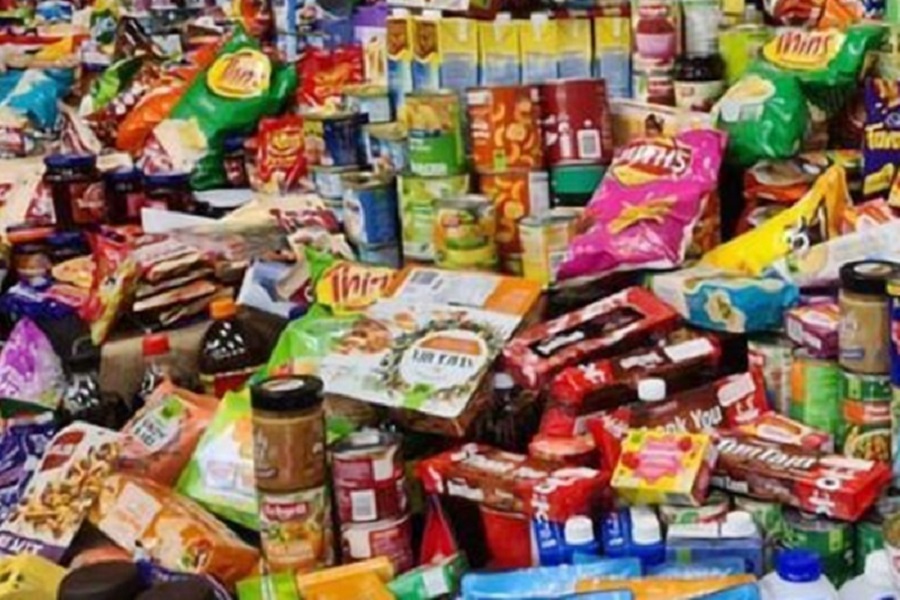



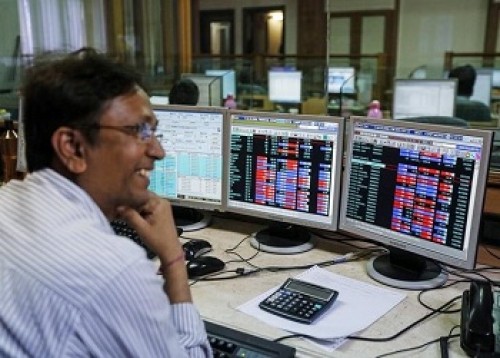





Tag News

Weekly Market Analysis : Markets strengthened recovery and gained nearly 2% in the passing w...





 320-x-100_uti_gold.jpg" alt="Advertisement">
320-x-100_uti_gold.jpg" alt="Advertisement">



